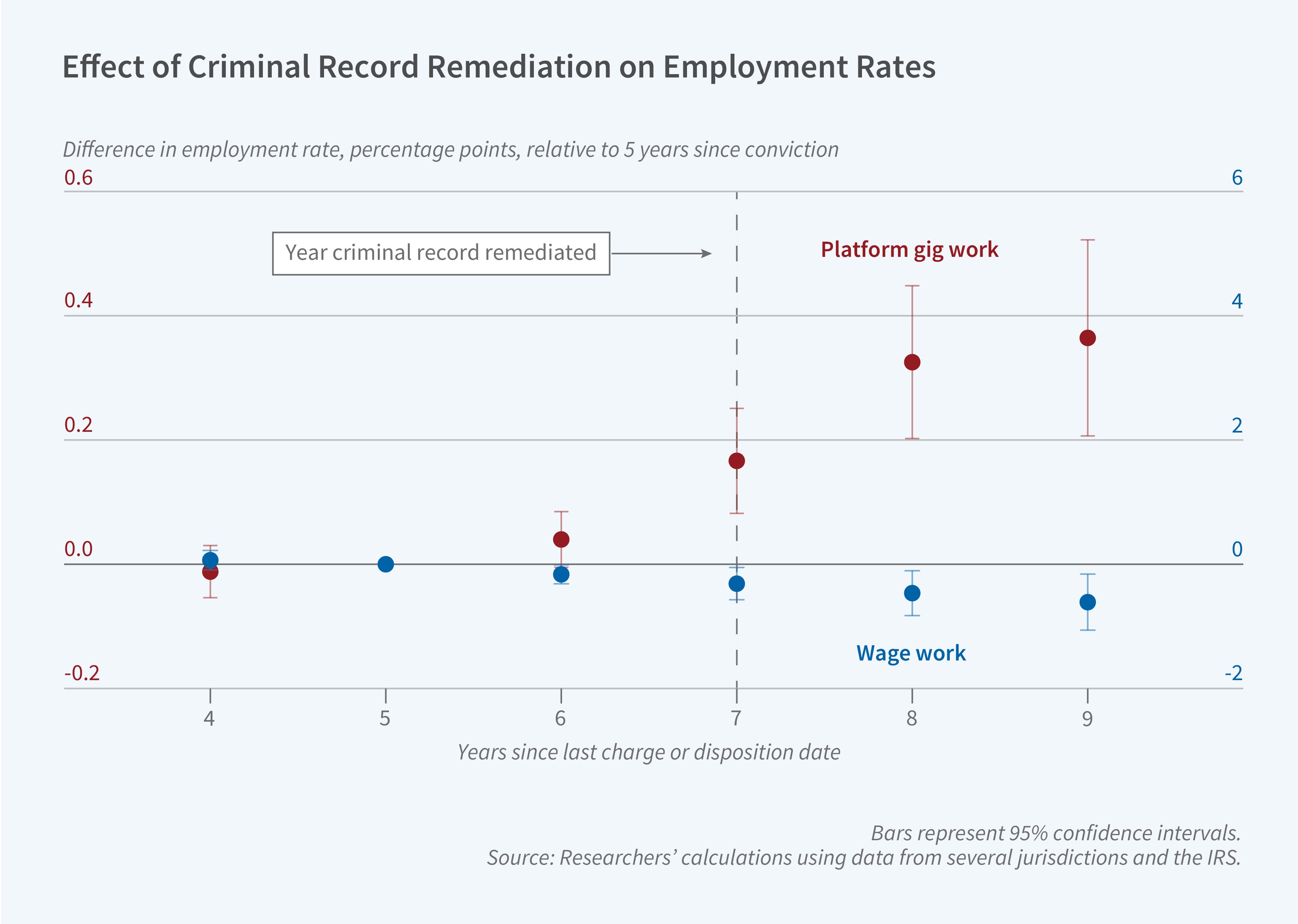Does Remediation of Criminal Records Raise Job Prospects?

Criminal record remediation laws are partially designed to increase employment opportunities for individuals charged with crimes. More than a third of working-age American adults have a criminal record. At least two-thirds of employers perform background checks and they are less likely to hire a job applicant who has been charged with a crime, even if the individual was not convicted. This may limit these individuals’ job market prospects and may be particularly damaging for men and communities of color, who have above-average rates of contact with the police.
In Can You Erase the Mark of a Criminal Record? Labor Market Impacts of Criminal Record Remediation (NBER Working Paper 32394), Amanda Y. Agan, Andrew Garin, Dmitri K. Koustas, Alexandre Mas, and Crystal Yang study a number of initiatives to remove certain criminal records from background checks in the US. There are multiple kinds of criminal record remediation laws, both at the federal and state levels. Some seal or prohibit the reporting of only non-convictions, such as cases that were dismissed, while others seal or prohibit the reporting of conviction records, generally after a specified length of time with no new offenses. The Pennsylvania Clean Slate Law, for example, automatically seals all non-convictions as well as some older minor convictions; since its passage, it has sealed the records of 1.2 million individuals. Some laws, like the federal Fair Credit Reporting Act, have additional restrictions. That act prohibits reporting non-convictions to employers after seven years for jobs paying less than $75,000. The Maryland Credit Reporting Law prohibits employers from requesting arrest or conviction records older than seven years for jobs that pay $20,000 or less.
Being charged with a crime, even if not convicted, can reduce one's employment prospects.
The researchers analyze data from Maryland, New Jersey, Pennsylvania, and Bexar County, Texas — the San Antonio metro area. With one exception, they do not find any noticeable increase in employment for individuals after their record is no longer reportable. The exception is an increase in gig platform work.
Being charged with a crime can reduce an individual’s employment prospects even when records are sealed or nonreportable after a non-conviction. Criminal charges can lead to resume gaps due to time spent in the criminal legal process, employer reluctance to hire people with records, or possible time spent incarcerated. Job loss associated with charges, or loss of a professional license such as that required for realtors and teachers, can also reduce job prospects. Gig platform positions may be different because companies like Uber often screen job candidates based on their criminal records but do not examine their employment histories. The researchers’ findings suggest that criminal records serve as a barrier to employment, but that their removal many years later is not sufficient to increase employment prospects on average, at least in traditional employment.
The researchers note that, even if it does not affect labor market outcomes, record remediation may have other positive effects on those charged with crimes, for example, improving access to housing.
—Greta Gaffin
The researchers received funding for this research through the Clean Slate Initiative, a project of the New Venture Fund.


